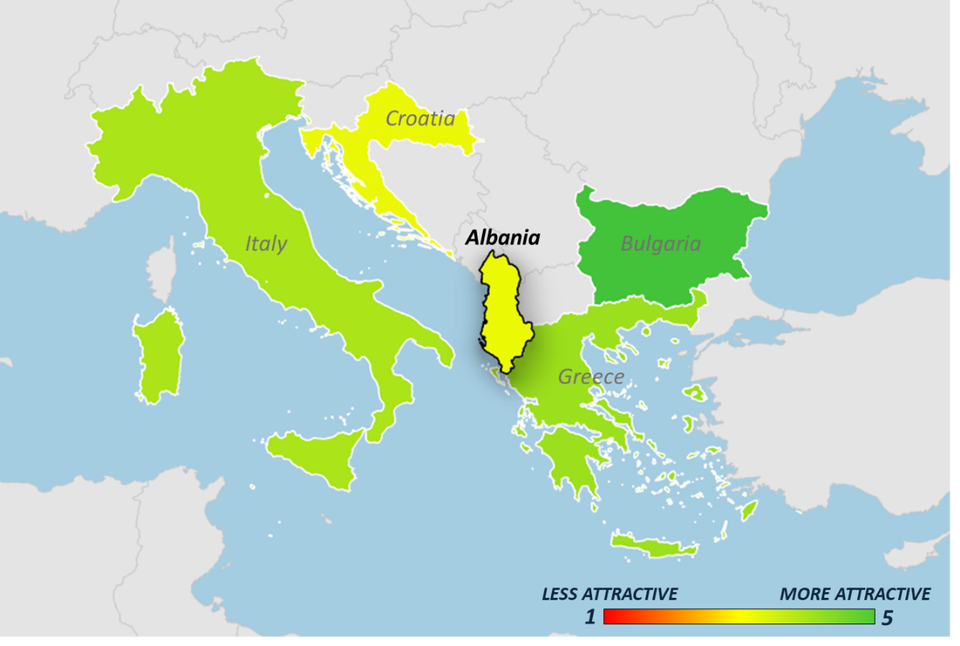Market Insight from
Albania offers upstream acreage in the form of production sharing agreements (PSAs). Upfront costs in the fiscal regime include signature and production bonuses, training fees, royalties levied at a rate of 10%, and a government allocation at a rate between 1%-5%. Both the royalty and government allocation are levied on gross production.
Following the deduction of upfront costs, licensees are entitled to recover petroleum costs incurred subject to a cost recovery limit of around 80%-90%, the remaining portion of production is then split between the licensee and the state.
The state’s production share typically ranges between 0% and 17.5%. Following this, a 50% tax on licensee profits is applied. The state does not directly participate in licenses.
Under the minimum PSA terms, Albania’s fiscal regime offers the lowest rate of return and the highest fiscal take among its regional peers, which might discourage investments in the future. Due to the regressive nature of royalties on gross production, when prices decrease or costs increase, the fiscal burden increases.

However, the use of R-factor for the government allocation and profit oil split helps alleviate the fiscal burden faced by investors when prices and costs change negatively. This, combined with the fact the majority of the tax is paid on profits only, means that the overall fiscal burden remains relatively proportional to the amount of profit made.
Albania has offered several blocks during the last few years, including Block B and E in 2021. It has effectively maintained the interest for its upstream oil and gas sector and has successfully awarded three onshore blocks to Shell and one block to Eni during 2018-2019. A new Petroleum Fiscal Law entered into force on 2 February 2021, which imposes an 85% limit on tax deductions and therefore a minimum level of tax.
In addition, the law includes ambiguous terminology regarding fiscal stability provisions for existing PSAs which could create uncertainty for existing investors in the petroleum sector. The government is currently investigating ways to benefit from the Trans Adriatic Pipeline and an LNG import terminal that could potentially be developed by ExxonMobil and Excelerate.
For more insight and data, visit GlobalData's Oil & Gas Intelligence Centre.
Albania’s new petroleum fiscal law imposes limits on tax deductions that could discourage future investments